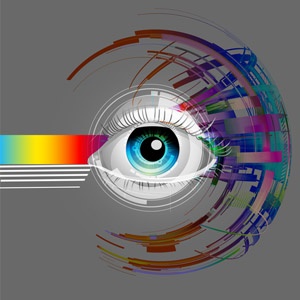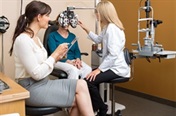
The outcome of eye disease can range from temporary discomfort to total vision loss, which is why all eye problems and diseases should be taken seriously.
If you experience any change in vision, it warrants medical attention. Many eye diseases have no early symptoms, so by the time a person notices vision changes, a problem may already be advanced. This is why regular eye check-ups are absolutely essential (every two years or more frequently if you have an eye problem).
The main causes of eye problems can be divided into five main groups:
- Inflammation of the eye and surrounding eye structures caused by bacterial, viral, parasitic or fungal infection.
- Injuries to the eye and surrounding eye structures, either as a result of trauma or an object in the eye.
- Genetically inherited eye diseases, many of which may only manifest later in life (although some children are born with these conditions). Many of these affect the structures and the functioning of the eye and therefore can impair visual abilities.
- Diseases or conditions, such as diabetes or migraine, which can affect other organ systems of the body, such as the eyes.
- External causes, such as allergies or eye strain owing to over-use, or as a side effect of medication.
Inflammation of the eye
Inflammation of the eye or eyes can be the result of viral, bacterial or fungal infections, sometimes following trauma to the eye or an allergic reaction. Inflammation is usually either categorised by the site of the inflammation (i.e. the conjunctiva) or by its cause.
Eye infections can occur in different parts of the eye and are characterised by redness, itching, swelling, discharge, pain and problems with vision. Many of these symptoms are also characteristic of eye allergies.
The most common eye infections include:
- Conjunctivitis
- Blepharitis (inflammation of the eyelash follicles)
- An external eyelid stye
- Uveitis (swelling of the middle layer of the eye)
- Scleritis (severe inflammation of outer protective layer of the eye)
- Iritis (inflammation of the coloured tissue around the pupil of the eye)
- Optic neuritis (when the optic nerve becomes inflamed and causes vision loss)
- A corneal ulcer (most frequently caused by herpes simplex keratitis, fungal keratitis, dry eye, or an eye injury)
- Keratitis (an infection of the clear layer of the cornea caused by a virus such as herpes simplex)
- Sarcoidosis (an inflammatory disease in which clumps of immune cells form in various organs, including the eyes)
Injuries to the eye and objects in the eye
Eye injuries can be the result of direct trauma or the penetration of an object into the eye. These can cause corneal scratches, or far more serious injuries.
Substances such as acids, oven cleaners and chalk dust can cause serious damage if they get into the eyes. Others, such as shampoo, can cause burning, stinging and short-term discomfort, but will not cause serious long-term injury. A black eye can be the result of being struck in the eye or in the area around the eye, causing bruising around the eye socket.
Trauma to the eye can cause retinal detachment, which is a serious condition that needs immediate medical treatment.
Fractures or cracks in the facial bones surrounding the eye also warrant immediate treatment.
Genetically inherited diseases
These can manifest in children or in adults. These conditions can all cause vision problems, or changes to the appearance of the eye.
Here is a list of the most common eye problems that are genetically inherited:
- Acute glaucoma
- Vision problems like nearsightedness, farsightedness, astigmatism (an imperfection in the curvature of the cornea), presbyopia (age-related farsightedness) and eye floaters
- Macular degeneration
- Cataracts
- Strabismus (squint)
- Lazy eye (the brain doesn’t receive images from the lazy eye correctly)
- Retinitis pigmentosa – a group of genetic conditions, all of which cause mottled pigmentation of the retina
Other conditions that affect the eyes
Many other conditions can affect eyesight, such as:
- Diabetes, which can cause diabetic retinopathy
- High blood pressure, which can cause hypertensive retinopathy
- Migraine
- Hyperthyroidism and Graves’ disease, which can cause bulging eyes
- Multiple sclerosis (MS), which can cause paralysis or weakness of the eye muscles
- Sarcoidosis causes clumps of immune cells to form in organs such as the eye
- Myasthenia gravis is a neuro-muscular disorder, which can cause drooping of the eyelid and double vision
External causes of eye disease
External causes include allergies, eyestrain owing to over-use, or medication.
Dry eyes are typically caused by environmental factors, and can also be a side effect of certain medications such as tranquillisers, diuretics, certain blood pressure medications, oral contraceptives and antihistamines.
The side effects of many other medications could affect your eye health. Discuss any problems with your doctor, and remember to give your ophthalmologist a full list of the medicines you’re taking when you go for your eye check-up.
Reviewed by ophthalmologist Dr Viresh Dullabh, MBBCh (Wits) FC Ophth SA (CMSA) MMED (UKZN). September 2018.
Read more:




 Publications
Publications
 Partners
Partners
















